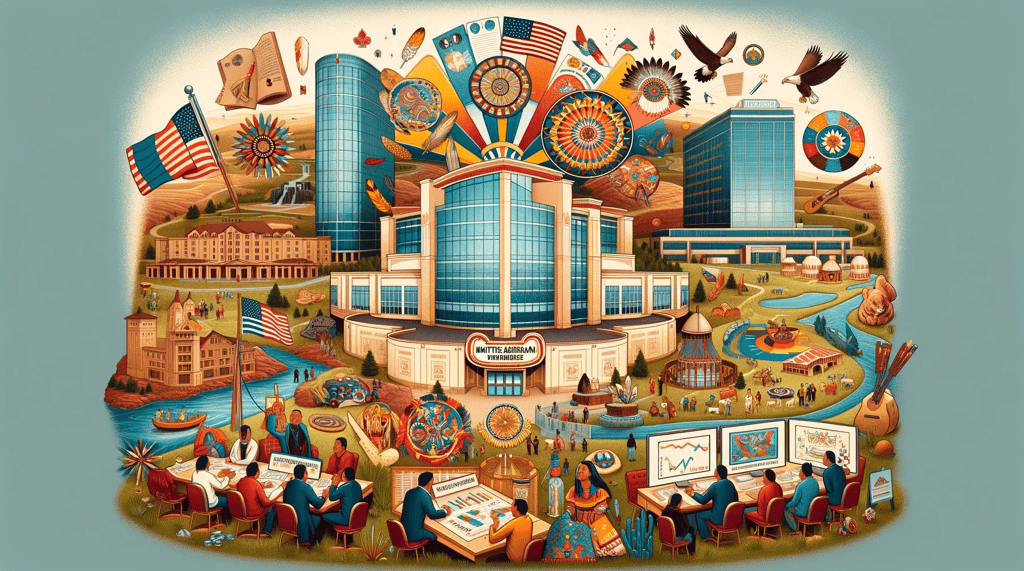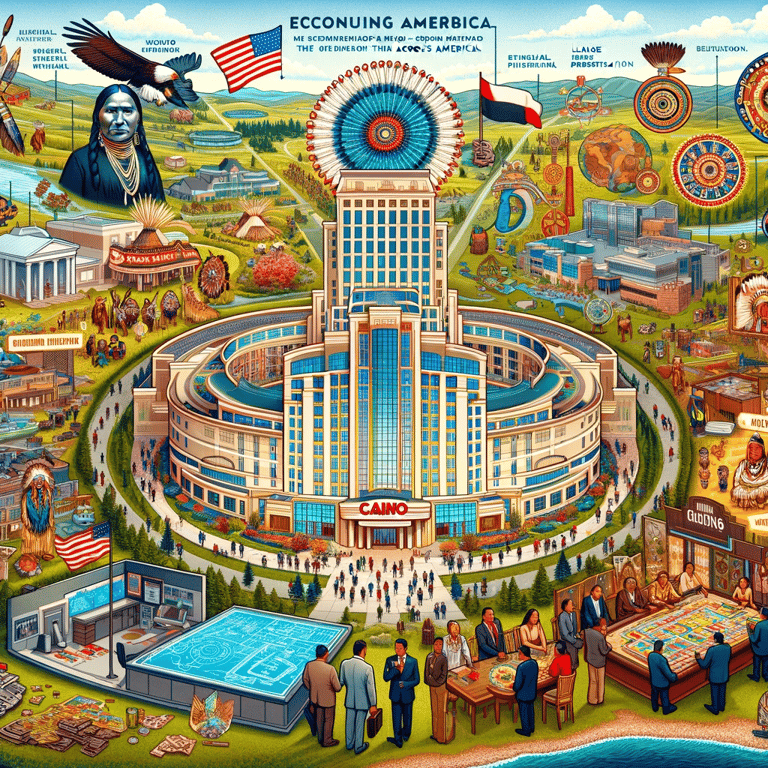The Economic and Cultural Impact of Native American Casinos in America
The story of Native American casinos is a fascinating and often underappreciated chapter in the economic development of the United States.
RSTOUR NEWS RELEASE
Rico Sanchez
1/16/20242 min read


The Economic and Cultural Impact of Native American Casinos in America
Introduction
The story of Native American casinos is a fascinating and often underappreciated chapter in the economic development of the United States. With over 500 recognized tribes, these nations have utilized gaming and casinos not just as a means of revenue, but also as a platform for preserving and promoting their unique cultures. This post delves into how these casinos benefit both the tribes and the broader American society.
Historical Context
The journey of Native American casinos began in earnest during the late 20th century. Prior to this, many tribes faced economic difficulties, with limited avenues for generating revenue. The Indian Gaming Regulatory Act of 1988 marked a turning point, legally recognizing the rights of federally recognized tribes to run casinos on their lands. This was more than an economic policy—it was a step towards self-determination and sovereignty.
Economic Benefits
For Native American Communities
1. Revenue Generation: The most direct benefit has been the generation of revenue. Casinos have provided a significant financial boost to many tribes, allowing them to fund essential services such as healthcare, education, and infrastructure development.
2. Employment Opportunities: These establishments have created thousands of jobs for both Native and non-Native people, offering a lifeline in regions that often struggle with high unemployment.
3. Business Development: The profits from casinos have also been reinvested into other entrepreneurial ventures, diversifying the economic base of many tribes.
For the Wider American Economy
1. Local Economies: Casinos attract tourists and visitors, bolstering the local economies through increased spending in surrounding areas.
2. Tax Revenue: While tribes themselves are sovereign entities, their economic activities generate substantial tax revenues for state and federal governments through indirect channels.
3. Job Creation: The employment opportunities extend beyond the casinos themselves, benefiting industries such as hospitality, construction, and various service sectors.
Cultural Benefits
Preserving Native American Heritage
1. Cultural Centers and Museums: Many casinos are coupled with cultural centers, museums, and educational facilities that promote Native American history and culture.
2. Language Revitalization: Profits from gaming have been used to fund language preservation and revitalization programs, crucial for keeping tribal traditions alive.
3. Promoting Awareness: These establishments serve as platforms for raising awareness about Native American history and current issues, fostering a deeper understanding among the broader populace.
Challenges and Future Prospects
Despite the successes, the road has not been without challenges. Issues such as regulatory hurdles, competition, and concerns about social impacts of gambling persist. However, the overall trajectory remains positive, with many tribes innovating and adapting to ensure that their casinos continue to be a source of prosperity and pride.
Conclusion
The story of Native American casinos is one of resilience, innovation, and cultural pride. It's a testament to the ability of these 500 nations to leverage economic tools to not only improve their own lives but also enrich the American fabric. As they continue to evolve and grow, these casinos stand as symbols of both economic success and cultural preservation.


© 2024 Rico Sanchez Entertainment, LLC. All rights reserved. No part of this publication may be reproduced, distributed, or transmitted in any form or by any means, including photocopying, recording, or other electronic or mechanical methods, without the prior written permission of the publisher, except in the case of brief quotations embodied in critical reviews and certain other noncommercial uses permitted by copyright law.
RSTOUR.Co
3280 Peachtree Rd NE
Atlanta, GA 30305
Contacts
ATL : +1 404.834.9059
LAX: +1 424.234.9610
© 2025 Rico Sanchez Entertainment, LLC. All rights reserved. No part of this publication may be reproduced, distributed, or transmitted in any form or by any means, including photocopying, recording, or other electronic or mechanical methods, without the prior written permission of the publisher, except in the case of brief quotations embodied in critical reviews and certain other noncommercial uses permitted by copyright law.
